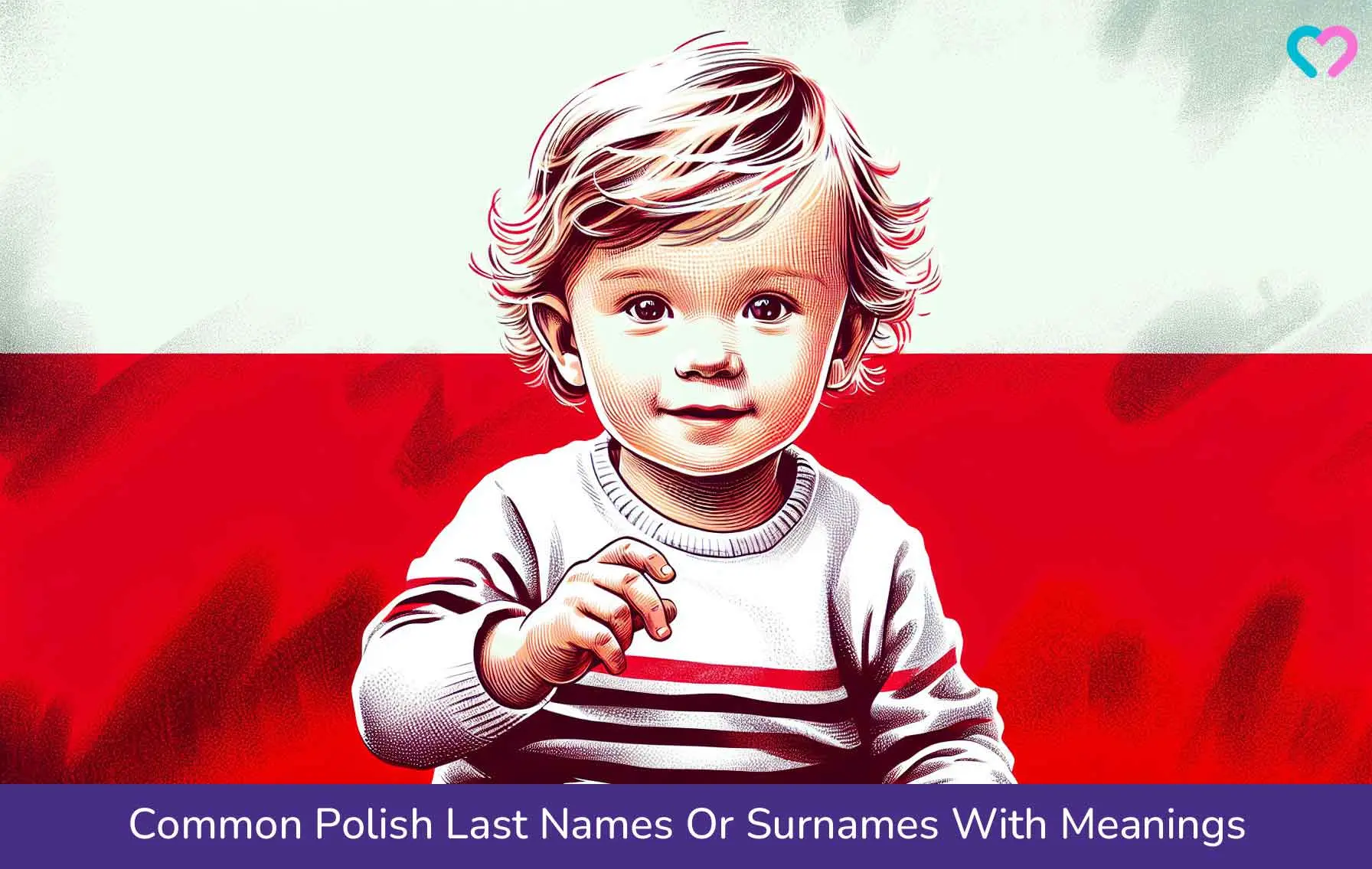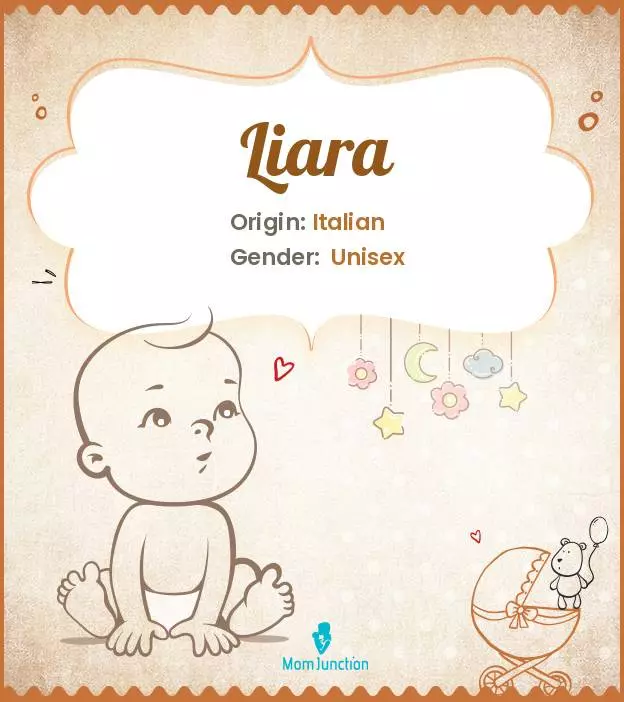
Image: Shutterstock
The country Poland got its name after the word ‘Polanie,’ which means ‘people living in open fields.’ Just as the word ‘Poland’ has a deeper meaning, Polish last names are also thoughtful and have great significance. Polish surnames often reflect the rich history of the Polish people, influenced by various cultural and regional factors. They serve as a bridge to the past, revealing ancestry and heritage and showcasing the evolution of language through time. Many Polish surnames are derived from geographic locations (toponymic), occupations, or personal characteristics, offering insight into the social structures and customs of earlier generations.
Polish toponymic surnames include the suffix ‘ski’, ‘cki,’ or ‘dzki,’ which means ‘of’ or ‘belong to.’ Using the suffix ‘ski’ or ‘cki’ is the most identifiable and common pattern in Polish family names.
This post includes a list of Polish surnames, their meanings, origins, and variants.
Key Pointers
- Poland stems from Polanie, meaning ‘people of the open fields.’ Thus, Polish surnames mainly originate from nicknames or place names.
- The suffix -ski or -cki is a distinctive and prevalent feature in Polish family names.
- Polish surnames also feature toponyms like Bukoski, Czajkowski, and Dubanowski.
- These last names also have profound meanings; for instance, Laska means ‘mercy,’ and Serafin means ‘fiery ones.’
List Of Popular Polish Last Names Or Family Names
Below is a list of some of the most popular and historically significant Polish surnames.
1. Adamik
Adamik is a very common Polish surname which refers to ‘a man’ in Hebrew.
 Trivia
Trivia2. Andrysiak
This patronymic polish surname refers to ‘Son of Andrzej.’ Here, Andrzej is the Polish form of Andrew, which means ‘manly’ or ‘masculine.’
3. Bartosz
Bartosz is the Polish form of Bartholomew, which refers to ‘Son of Talmai’ or ‘Son of Furrows.’ Bartholomew was one of the twelve apostles of Jesus. Furrows are grooves made in the soil with a plow before planting the seeds.
4. Bosko
Derived from the Slavic word bosu, Bosko means ‘barefoot.’
5. Broz
This Polish surname is derived from ‘Ambrozy,’ ‘Ambrosius’ or ‘Ambrose’ that means ‘immortal.’
6. Brzezinski
It is derived from the Polish word ‘brzezina’ referring to ‘birch forest.’
7. Budny
Budny is a Polish last name derived from the word ‘buda’ that means ‘hut’ or ‘cabin.’
8. Bukoski
Bukoski is a spelling variant of ‘Bukowski’ and a toponymic last name denoting someone who belonged to a town called ‘Bukowo’ or ‘Bukowiec.’
9. Bukowski
This Polish surname is derived from the word called ‘buk’ referring to ‘beech.’ Another reference suggests that it is a variant of Bukoski, a locational surname referring to ‘someone who came from ‘Bukowo’ or ‘Bukowiec.’
 Trivia
Trivia10. Chlebek
Chlebek is an occupational Polish last name derived from the word ‘chleb’ that means ‘bread.’
11. Chmiel
Another occupational last name, Chmiel is derived from the word ‘chmel’ referring to ‘hops.’ Chmiel is someone who is engaged in growing ‘hops,’ which is a plant used in brewing beer.
12. Czajka

This interesting family name refers to a ‘lapwing bird’ in Polish.
13. Czajkowski
It is a locational or toponymic last name referring to people who belong to the village of ‘Czajkow’ or any other place with a name starting with the word ‘Czajk’. The word ‘Czajk’ itself is derived from the Polish word ‘Czajka’ which means a ‘lapwing bird.’
14. Dubanowski
Derived from the name of a town called ‘Dubinowo,’ Dubanowski is a toponymic Polish last name often of those who were the original inhabitants of the town.
15. Dubicki
Another toponymic last name Dubicki is derived from the name of a town called Dubica located in Poland.
16. Dunajski
This Polish surname is derived from the name of a river called the Danube. ‘Dunaj’ is the Polish name for the river Danube.
17. Dziedzic
Dziedzic refers to ‘landowner’ in Polish.
18. Fabian
Fabian is derived from the word ‘faba,’ which means a ‘bean’ in Latin. Fabian was also the name of a popular 3rd century Pope.
 Trivia
Trivia19. Filipiak
It is derived from ‘Filip’ or ‘Philip,’ which means ‘a friend of horses’ or ‘horse lover’ in Greek.
20. Filipowski
This is a toponymic Polish surname derived from the name of a Polish town ‘Filipow.’
21. Gajus
Gajus is a Polish last name derived from the word ‘gaj’ which means ‘grove’ or ‘thicket.’
22. Gniewek
This last name is derived from the word ‘gniew’ which means ‘anger’ in Polish.
23. Gomolka
A unique Polish surname derived from Gomolka, which is a type of ‘round cheese.’
24. Gorecki
Gorecki is derived from a Polish word ‘gora’ that means ‘a mountain’. Gorka is also the name of many towns in Poland, thus making ‘Gorecki’ a toponymic last name.
25. Gorka
Gorka is a variant of ‘Gorecki’ and a toponymic Polish surname which is derived from the name of several towns in Poland.
26. Gorski
Gorski is derived from the Polish word ‘gora’ which means ‘a mountain.’
27. Grzeskowiak
This Polish last name is derived from the word ‘Grzegorz’, which itself is derived from the Latin word ‘Gregorius’. A variation of Gregorius is ‘Gregory,’ which in Greek means ‘someone who is watchful.’
28. Gwozdz
Derived from the Polish word ‘gwozdz’, which refers to a nail’ (metal nail).
29. Jagoda
This Polish surname refers to ‘berries.’
30. Janda
Janda is derived from ‘Jan’, ‘Johannes’ or ‘John,’ which mean ‘Yahweh is gracious’ in Hebrew.
31. Jankowski
A spelling variant of Janowski, this Polish surname is a toponymic last name derived from the name of a town called ‘Jankowo’ or ‘Jankow’.
32. Jaskolski
This is a variant of Jaskulski, derived from the name of Polish villages and towns named Jaskolki. Jaskolki is itself derived from the word ‘Jaskolka,’ which means the bird swallow in Polish.
33. Jedynak
This last name means the ‘only child’ in Polish.
34. Jelen
Jelen originated in the Czech Republic, and the surname refers to ‘a stag.’
35. Jez
This Polish surname refers to ‘a hedgehog’ in Polish.
36. Kaczka

This Polish family name refers to ‘a duck’ in Polish.
37. Kaluza
Kaluza means ‘puddle’ in the Polish language.
38. Kaminski
It is derived from the word ‘kamien’ referring to ‘a stone.’ The surname likely refers to someone from any of the several villages and towns named Kamien in Poland.
39. Kasprzak
It originates from the name Kasper/Kacper, which originates from an ancient Persian word ‘Gizbar.’ Gizbar means a ‘treasurer.’
40. Kawa
This last name is derived from the word ‘kawka’ meaning the bird ‘jackdaw’ in Polish.
41. Kedzierski
Kedzierski is derived from ‘kedzior,’ which in Polish means a ‘lock of hair.’ Kedzierski is a nickname often given to ‘curly-haired’ people, and the word eventually evolved into a Polish surname.
42. Kijek
This last name is derived from the word ‘kij’ which means ‘stick’ or ‘small stick’ in Polish.
43. Klimek
It is derived from Klemens or Clement, and. ‘Clement’ means ‘merciful’ in Latin.
44. Kosmatka
This Polish surname is derived from the Polish word ‘kosmaty’ referring to ‘shaggy’ or ‘hairy.’
45. Kowalczyk
It is derived from the Polish word ‘kowal’ that means ‘a blacksmith.’ Thus, it is an occupational surname.
46. Koziel
Koziel is a variant of Koziol referring to ‘a male goat’ in Polish.
47. Kozlowski
This is a toponymic Polish surname derived from the name of towns called ‘Kozlow’ or ‘Kozlowo’ located in Poland.
48. Krakowski
This is a toponymic Polish surname referring to the name of the city called Krakow in Poland.
49. Krol
This surname is derived from the word ‘Krol,’ which in Polish means king. It was often used as an occupational surname for those who worked in the king’s household.
50. Kumiega
The name is derived from the Polish word ‘Kum,’ which means ‘godfather’ or a ‘crony.’ The word crony means a close pal.
51. Laska
Laska refers to ‘grace’ or ‘mercy’ in the Polish language.
52. Lawniczak
This Polish surname is derived from the word ‘lawnik’ referring to ‘alderman,’ which means a municipal councilor.
53. Lis
It originated from a nickname for a sly person since Lis refers to the animal ‘fox’ in Polish.
54. Majewski
It is derived from the Polish word ‘maj,’ meaning the month of May. The surname could also refer to someone from any of the various villages and towns named Majewo in Poland.
55. Malinowski

This Polish surname is derived from the word ‘malina,’ which means ‘raspberry.’ Malinowski could also be the toponymic family name of the people belonging to places whose name starts with ‘Malinów,’ which means ‘missing.’
56. Maly
Maly originated as a last name from the Polish word for ‘small.’
57. Marek
Marek was derived from ‘Mark,’ which was taken from the name of Saint Mark. In the New Testament, Saint Mark was the author of the second gospel.
58. Marszalek
This Polish surname means ‘Marshall,’ which could refer to a court, military or government official of high rank.
59. Maslanka
This surname means ‘buttermilk’ in Polish. It likely suggests an occupational origin of the surname for those who worked in dairy or production of buttermilk.
60. Mencher
Mencher is an occupational Polish surname derived from the word ‘maczarz,’ also spelled mlynarz, which refers to ‘a miller’ or a ‘flour dealer.’
61. Miazga
This Polish last name means ‘pulp’ or ‘crush.’
62. Mozdzierz
It means ‘mortar’ in Polish, referring to someone who worked with mortar or sold mortar.
63. Musial
It is derived from the word ‘must.’ Musial is an interesting Polish last name meaning ‘one who has to’ or ‘one who had to.’
64. Niemec
Niemec means ‘German’ in Polish which could mean that this surname migrated to Poland and refers to people who came from Germany.
65. Nosek
This last name means a ‘small nose’ in both Polish and Czech languages.
66. Nowak
A variant of ‘Novak,’ this last name is derived from the word ‘nowy’ meaning ‘new.’
67. Ostrowski
Derived from the Polish word ‘ostrow,’ this last name refers to ‘water island’ or a ‘water meadow.’
68. Pakulski
This is a toponymic Polish last name referring to people who belonged to a town called ‘Pakuly’, located in Poland.
69. Pasternak
This last name refers to ‘parsnip,’ a root vegetable similar to carrot.
70. Paszek
This Polish surname is derived from the Latin word ‘Paulus,’ referring to ‘small’ or ‘little.’
71. Piatek
It is derived from the word ‘piaty’ referring to ‘fifth.’ The name could also be taken from ‘Piatek,’ which means ‘Friday’ in Polish.
72. Piotrowski
The toponymic surname refers to someone from any of the Polish towns with names beginning with ‘Piotrow,’ for example ‘Piotrow,’ ‘Piotrowo’ or ‘Piotrowice.’
73. Pokorny
Pokorny possibly originated in the Czech Republic and means ‘humble.’
74. Poplawski
It is a toponymic surname for a person from any of the various places named Poplawy in Poland. This surname is derived from the word ‘poplaw’, which means ‘flowing water’ or ‘flood.’
75. Rog
This Polish surname means ‘animal horn.’ It could also refer to someone whose occupation was to blow the horn.
76. Rudaski
It is a variant of Rudawski, a locational surname referring to people who lived near the river Rudawa in Poland.
77. Rusnak
It is an ethnic name for ‘Russian’ and refers to people who migrated from Russia to Poland.
78. Rutkowski
This is a toponymic Polish family name referring to people belonging to any of the various places called Rutki in Poland.
79. Ryba

The occupational surname means ‘fish,’ and refers to fisherman or sellers of fish.
80. Sadowski
Sadowski is a toponymic Polish surname referring to someone who belonged to ‘Sadowo’ or ‘Sadowice’ in Poland. Another reference is derived from the Polish word ‘sad’ meaning ‘garden’ or ‘orchard.’
81. Serafin
This last name is derived from the Biblical word ‘serafim’ that originated in Hebrew. It translates to the ‘fiery ones.’
82. Sikora
Sikora refers to a small bird called ‘titmouse.’ The surname is derived from a nickname for a small and dark person.
83. Sitko
It refers to ‘a fine sieve’ and is derived from the word ‘sito’ which means ‘sieve.’
84. Skala
This last name refers to a ‘rock’ and denotes that the first bearer of this surname likely lived around a prominent rock.
85. Slusarski
This is an occupational surname derived from ‘slusarz’, which means a ‘locksmith.’
86. Smolak
Smolak is derived from the word ‘smola’ referring to ‘pitch.’ Thus, it is an occupational Polish last name which refers to a ‘distiller of a pitch’ where ‘pitch’ is a liquid resembling coal tar.
87. Sniegowski
It is derived from the word ‘Snieg’ which means ‘snow’ thus likely referring to someone who lives around snow.
88. Sobol
This name is derived from the word ‘sobol,’ which is a type of marten – a wild animal. It is an occupational last name for a ‘fur trader.’
89. Sokolowski
A toponymic last name for someone who belongs to any of the various places called Sokolow in Poland. Sokolow itself is derived from the word Sokol, which refers to a falcon.
90. Sowka
It is derived from the Polish word ‘sowa’ referring to an ‘owl.’
91. Starek
Starek is derived from the word ‘stary’ meaning ‘old.’ This name originated as a nickname and later evolved into a surname.
92. Starosta
It means ‘foreman’ or a ‘leader’ in Polish.
93. Szewczyk
This Polish occupational last name refers to ‘a shoemaker’.
94. Szweda
It is derived from ‘Szwed,’ which itself means ‘Swede,’ that is, a person from Sweden.
95. Warszawski
Another toponymic last name, Warszawaski refers to someone who belonged to the city of Warsaw situated in Poland.
96. Wrona

This Polish surname is derived from the name of ‘crow.’
97. Wyrzykowski
It is a toponymic name deriving from various places named Wyrzyki in Poland.
98. Zdunowski
This Polish toponymic last name is derived from the name of several towns named Zduny. Another reference also suggests Zdunowski could be an occupational surname, derived from ‘zdun’ referring to ‘a potter.’
99. Zima
It is derived from the word ‘zimowy’ meaning ‘winter.’ Zima was the nickname of people with a chilly or frosty personality. It later evolved as a Polish last name.
100. Zuraw
It means ‘crane.’ It is a nickname for a tall person. Eventually, the nickname evolved into One of the Polish Z last names.
Discover More Names
When you have to choose a name for your baby, a few hundreds of names may not be just enough. Keep digging our mine of baby names until you find that one precious gem.
Frequently Asked Questions
1. Are Polish surnames gendered?
Yes, in Polish, the surnames of a woman and a man differ. The suffixes -i and -y are masculine, while most female surnames end with a suffix -a. Traditionally, a married woman uses the suffixes -ówna or -‘anka with her father’s surname. Married women use their husband’s surname with the suffixes -owa or -‘ina / -‘yna (1).
2. How do Polish last names work?
Polish names are mostly patrilineal, which means they are passed on from father to son. The females inherit their father’s name with a different suffix than that of fellow male siblings. After the wedding, the females may adopt their husband’s surname with the approval of feminine suffixes. In Polish naming traditions, the given name always comes before the surname (1).
3. What is the oldest Polish last name?
The oldest recorded Polish last name is difficult to determine with absolute certainty, as surnames in Poland may be traced back hundreds of years. However, one of the oldest known Polish surnames is believed to be Gutowski.
4. What are some common suffixes in Polish surnames, and what do they signify?
Polish surnames often feature distinct suffixes that convey specific meanings or cultural significance. Adjectival surnames frequently end with the suffixes -ski, -cki, and -dzki (with feminine forms being -ska, -cka, and -dzka) and are commonly associated with the nobility. The -ski suffix, in particular, indicates a city, town, village, or geographical area.
5. Are there any regional differences in Polish last names?
The majority of the Polish names share similarities with each other. However, minor regional differences may be seen in the spelling of the surnames based on their origin, i.e., whether they are from Polish, Slovak, or Czech languages.
Learning about Polish surnames is wonderful, whether you’re a Game of Thrones fan or just want to understand more about Poland. Polish surnames were only officially inherited about 200 years ago. Most of the Polish surnames, including Bartosz, Chlebek, Dubanowski, a toponymic Polish surname Filipowski, Gniewek, Grzeskowiak, Ostrowski, Rog, and Serafin have meanings and histories that might help you learn more about Polish culture and tribes. So go ahead and read through the surnames so that you may impress others with your knowledge of Poland when the chance presents itself.
Infographic: Common Polish Last Names Or Surnames With Meanings
Poland is a country well-known for its rich cultural history and stunning geographical features. To know more about Poland, you must know about the people and their history. One interesting way to know about them is by understanding their last names. In the following infographic, you will find a list of Polish last names along with their meanings to explore. Illustration: Momjunction Design Team
Illustration: Common Polish Last Names Or Surnames With Meanings

Image: Dall·E/MomJunction Design Team
Learn about the differences between masculine and feminine Polish last names. Here is a list of the most common Polish surnames.
References
- Polish patronymic and surname suffixes.
https://kehilalinks.jewishgen.org/suchostaw/polish_patronymics_and_surname_suffixes.htm
Community Experiences
Join the conversation and become a part of our nurturing community! Share your stories, experiences, and insights to connect with fellow parents.
Read full bio of Shikha Thakur
Read full bio of Srija Chanda Burman
Read full bio of Angela Alex


















